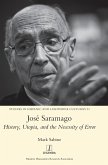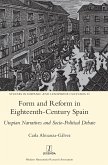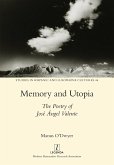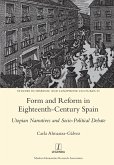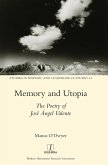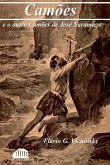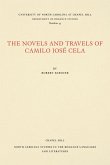Although best known internationally for his 'allegorical' novels such as Blindness (1995), in his native Portugal, José Saramago remains most acclaimed for his earlier, richly poetic 'historical' novels. This new study of five of these works focuses on José Saramago's engagement with political and social philosophy from across Europe, so as to track his commitment to libertarian socialism in an era of neo-liberal economics and disillusion. Though deeply pessimistic about human being's capacity to deliver social justice, Saramago never abandons the progressive cause. Making use of insights from Gramsci, Walter Benjamin, and Marcuse, among others, this study argues that Saramago sought to engage his reader with a skeptical but vibrant utopianism: teaching us to abandon absolutes and embrace error as inevitable, and, indeed, even necessary. From this post-humanist perspective, humanity becomes understood as ongoing project rather than essence, challenging individuals to strive for self-knowledge and reinvention. Mark Sabine is Lecturer in Lusophone Studies at the University of Nottingham.
Hinweis: Dieser Artikel kann nur an eine deutsche Lieferadresse ausgeliefert werden.
Hinweis: Dieser Artikel kann nur an eine deutsche Lieferadresse ausgeliefert werden.


